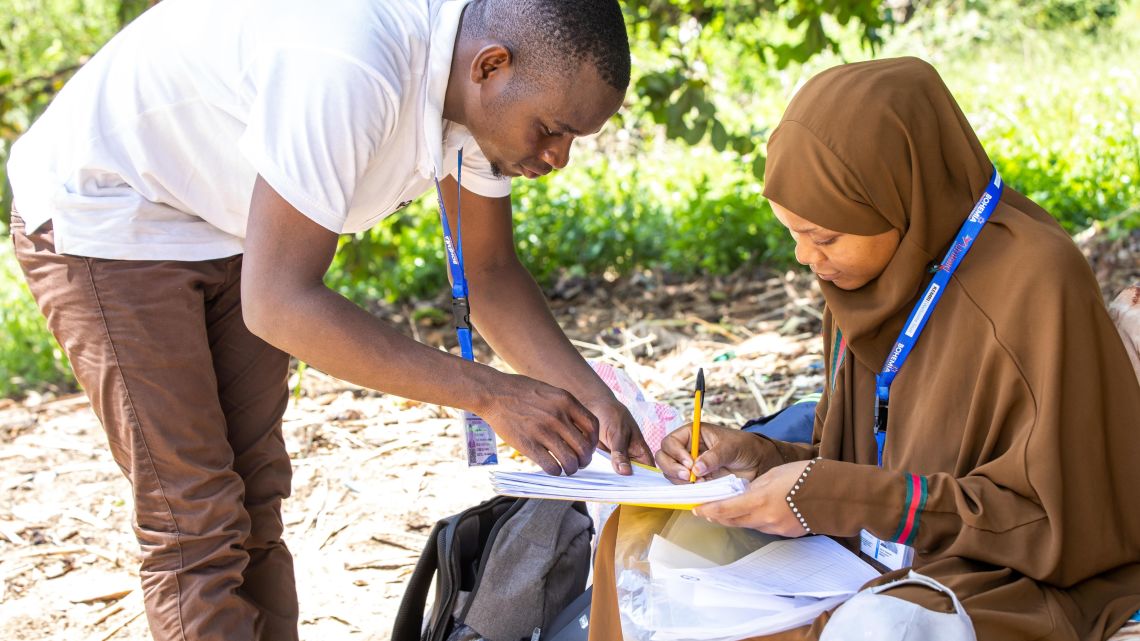Ivermectin could help control malaria transmission by killing the mosquitoes

Malaria remains a global health challenge, with
The BOHEMIA trial, the largest study on ivermectin for malaria to date, showed a 26% reduction in new malaria infection on top of existing bed nets,The New England Journal of Medicine.
Ivermectin is a drug traditionally used to treat neglected tropical diseases like onchocerciasis which causes river blindness and lymphatic filariasis which causes elephantiasis. It has now been shown to reduce malaria transmission by killing the mosquitoes that feed on treated individuals. Given the rising resistance to conventional insecticides, ivermectin could offer an effective new approach to
The Unitaid-funded BOHEMIA project
In Kwale County, Kenya, children who received ivermectin experienced a 26% reduction in malaria infection incidence
Professor Marta Maia, Associate Professor at the Centre for Tropical Medicine and Global Health and Medical Entomologist based at the KEMRI-Wellcome Trust Research Programme, said: ‘The findings suggest that
Dr Joseph Mwangangi, Senior Principal Research Scientist at the KEMRI-Wellcome Trust Research Programme, added: ‘These results align with the World Health Organization’s (WHO) criteria for new vector control tools.’
Carlos Chaccour, co-principal investigator of the BOHEMIA project said: ‘We are thrilled with these results. Ivermectin has shown great promise in reducing malaria transmission and could complement existing control measures. With continued research, ivermectin MDA could become an effective tool for malaria control and even contribute to elimination efforts.’
In contrast, the implementation of the Mozambique trial in the rural district of Mopeia faced severe disruptions due to Cyclone Gombe in 2022 and a subsequent cholera outbreak, which significantly disrupted operations.
Francisco Saúte, director of the Manhiça Health Research Centre said: ‘One of the most important lessons we learned from the trial in Mopeia is that
In addition to reducing malaria transmission, ivermectin MDA offers significant collateral benefits. The BOHEMIA team found an important reduction in the prevalence of skin infestations such as scabies and head lice in the ivermectin group in Mozambique, and the community reported a major reduction in bed bugs in Kenya. These effects are particularly valuable when ivermectin is integrated into existing delivery systems, maximising its impact on public health.
The study is part of a larger global effort to assess ivermectin’s potential in malaria control. The findings have been reviewed by the WHO vector control advisory group, which concluded that the study had demonstrated impact and recommended further studies. Findings were also shared with national health authorities as they evaluate the potential inclusion of ivermectin in malaria control programmes.
Regina Rabinovich, BOHEMIA PI and Director of ISGlobal’s Malaria Elimination Initiative said: ‘This research has the potential to shape the future of malaria prevention, particularly in endemic areas where existing tools are failing. With its novel mechanism of action and proven safety profile, ivermectin could offer a new approach using a well-known, safe drug that can add to the effect of other mosquito control tools available today.’
What's Your Reaction?
 Like
0
Like
0
 Dislike
0
Dislike
0
 Love
0
Love
0
 Funny
0
Funny
0
 Angry
0
Angry
0
 Sad
0
Sad
0
 Wow
0
Wow
0








































